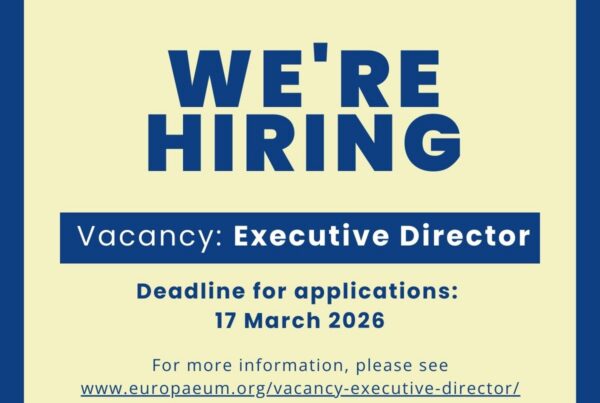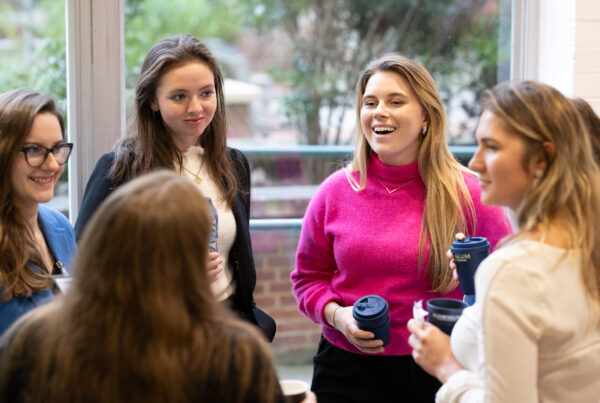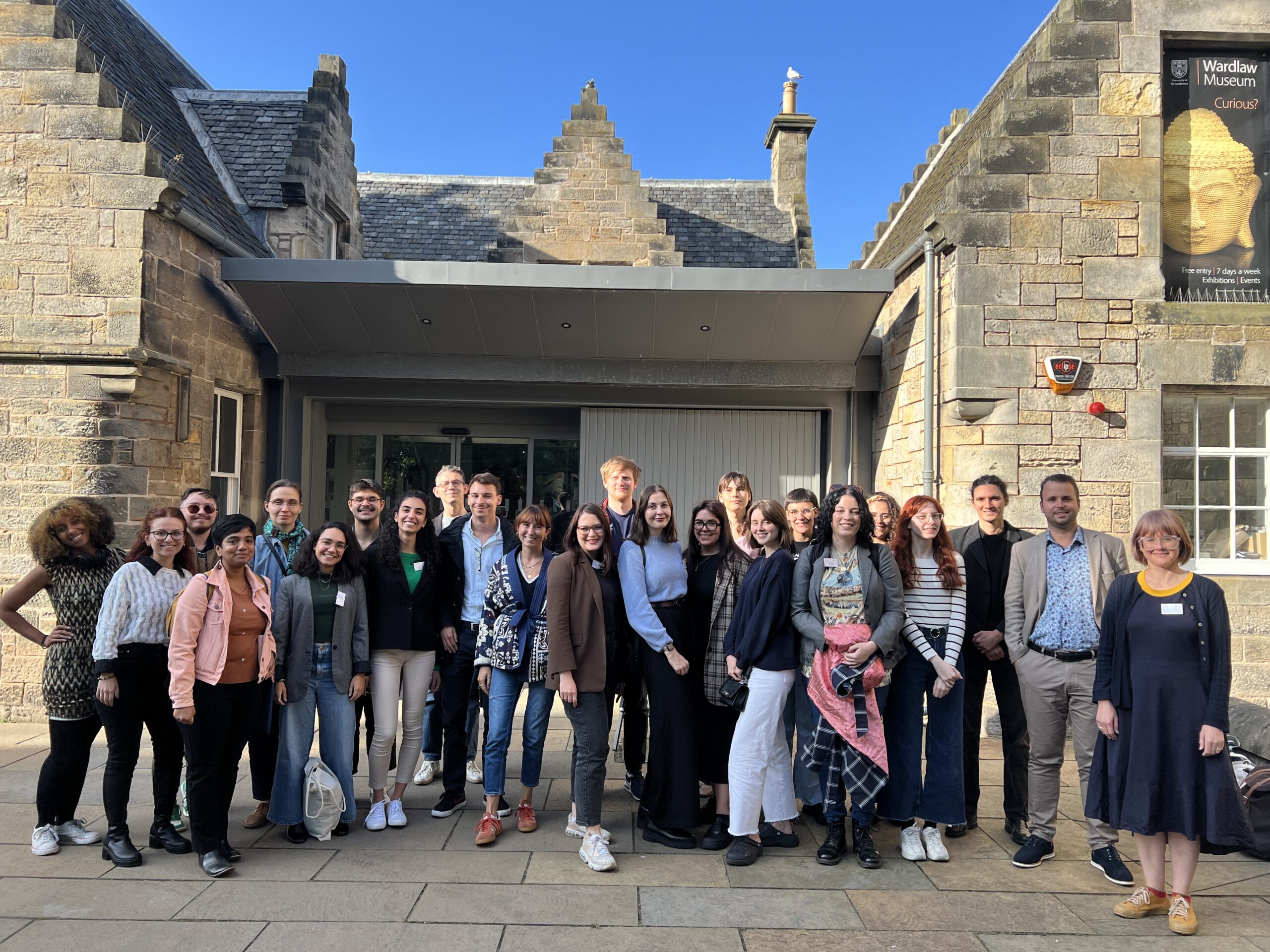
The Europaeum’s Summer School on Marginalised Histories – Cultural Heritage and Archives took place at the University of St Andrews from 27 to 30 September. Cultural heritage institutions, in Europe and beyond, increasingly look to the objects in their collections as resources for establishing inclusion and diversity. Historians are likewise concerned with expanding their understandings of diverse cultural experiences by addressing the absence and marginalisation of particular communities in those histories. The Summer School interrogated state-of-the-art techniques used to achieve these aims, and how they might be applied to student projects, across a range of media including artefacts, texts, and film.
Gönül Bozoğlu, a lecturer in Museum and Heritage Studies at St Andrews, got proceedings underway through presentation of her recent film on the “afterlife” of the early twentieth-century Greek community of Istanbul. Professor Catherine O’Leary, Assistant Vice-Principal and Dean of Arts and Divinity, then welcomed students at the start of Day 2 before the first keynote lecture by Professor Glyn Davis (St Andrews, Film Studies). Professor Davis analysed the “chill of the archive” and the problem researchers face in encountering and documenting the “difficult heritage” of groups such as queer communities.
The Summer School continued with a roundtable discussion in which four lecturers (Gönül Bozoğlu and Bruno Brulon Soares from St Andrews; Michael Nebeling Petersen, Copenhagen; Gracia Trujillo Barbadillo, Complutense de Madrid) compared their experiences researching different marginalised persons in various contexts.
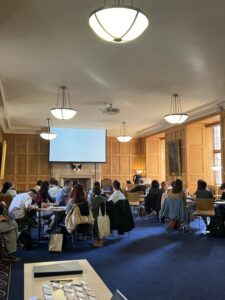
Twelve students presented their work across four student panels. However, the event also saw a screening of a German film attempting to trace the identity and family of a young Sikh recorded in a German Prisoner of War Camp in World War One, two workshops (Lucy Fife Donaldson, St Andrews; Tom Rice, St Andrews and archivists from the National Library of Scotland), and two further roundtables (Nicôle Meehan, Stephanie O’Rouke, Tyler Parks, and Anindya Raychaudri, St Andrews; Paul Flaig, Dora Osbourne, Anushrut Ramakrishnan Agrwaal, St Andrews, and Tobias de Fønns Wung-Sung, Copenhagen). Professor Andrea Pető (Central European University) gave a second keynote lecture which discussed threats to academic freedom in Hungary and elsewhere, as well as the importance of defending minority communities and traditions in the face of political onslaught.
In keeping with the Europaeum tradition of encouraging cultural activities as part of our event programmes, the students also visited Dundee Contemporary Arts where they received a guided tour of the print workshop and of Claudia Martínez Garay’s new exhibition of Peruvian art (“Every Seed is Awakened”) from head curator Tiffany Boyle.
The Europaeum extends its thanks and gratitude to the many people at St Andrews (both academic and support staff) who made this event such a success. It acknowledges, in particular, Dr Lucy Fife Donaldson, the local organiser and point of contact for academic matters, Harriet Sheridan and Jonny Airey from the University’s Global Office, who arranged the logistics, and Professor Sally Mapstone DBE FRSE, the Principal and Vice-Chancellor, who took time from her busy schedule to address the students during the closing reception.
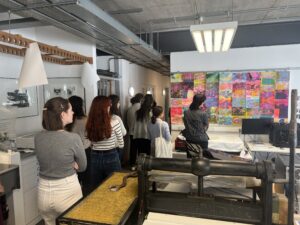
Student Sanjna Yechareddy from the Graduate Institute, Geneva writes:
“We enjoyed rare sunshine in the seaside town of St. Andrews as we collectively deliberated on marginalized histories in various geographical contexts. I was able to interact with scholars from across history, anthropology, gender studies, film studies and museology – making this experience intellectually engaging. I particularly enjoyed the thoughtful curation of lectures, workshops with archivists, presentations by fellow students, movie screenings and field trips to the Dundee Centre for Arts and the Wardlaw Museum. I really appreciated how the team at Europaeum and St. Andrews were incredibly supportive and encouraging – helping us from the time of visa applications to arrival and throughout the three-day programme. I hope to stay in touch with the colleagues I met during this summer school and collaborate on future projects!”
Student Chrystalle Zebdi-Bartz from the University of Luxembourg writes:
“The 2024 Summer School at the University of St Andrews proved to be a highly rewarding experience from a number of perspectives. Firstly, it afforded me the opportunity to engage in three days of interdisciplinary exchange with scholars from various European universities on a subject that unified us: marginalised histories, cultural heritage and archives. Furthermore, the Europaeum afforded me the chance to present my research at the Summer School. It was an invaluable opportunity to gain familiarity with the Anglo-Saxon academic world. On a more personal note, the doctoral thesis years can be characterised by a sense of isolation and complexity. These few days spent in St Andrews, in a magnificent setting, provided an invaluable opportunity to gain a fresh perspective while exploring new research projects and methodologies.”

